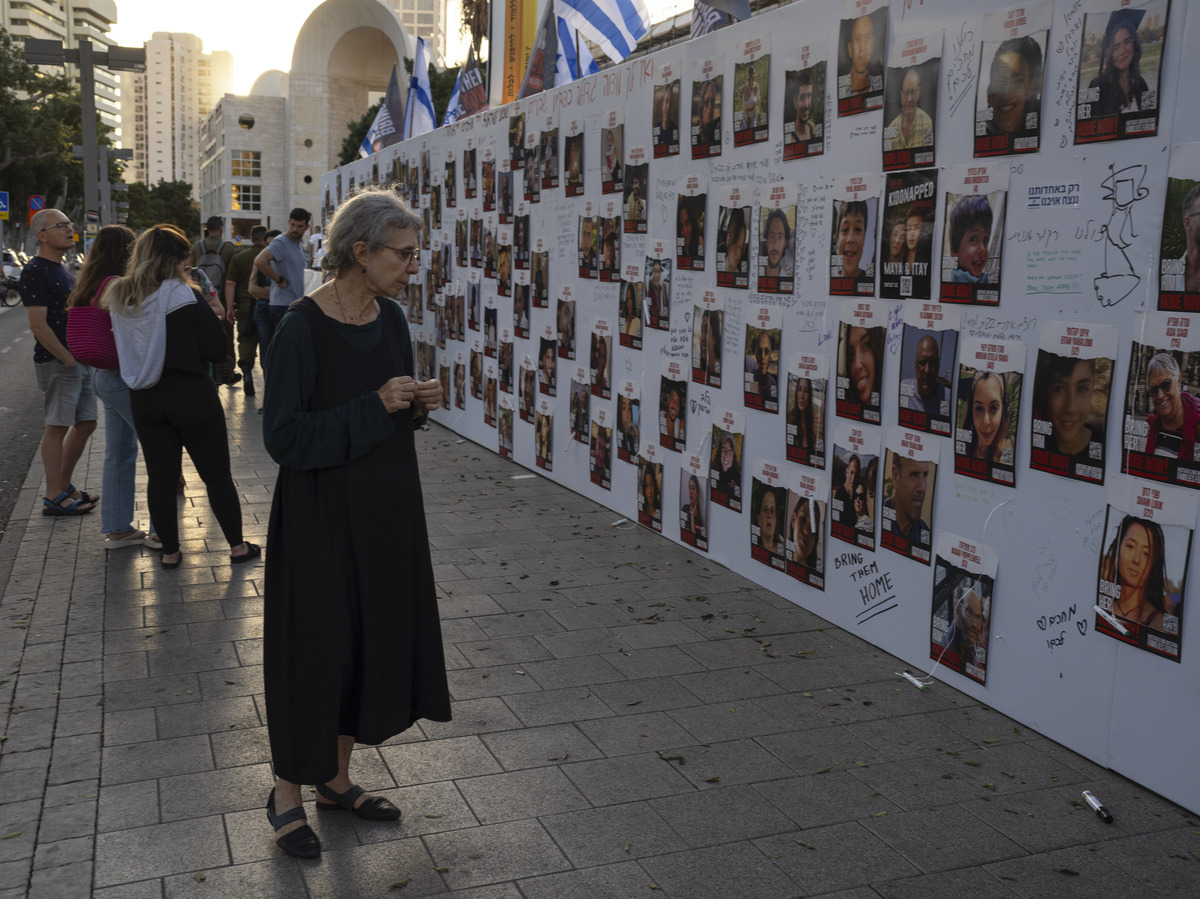
An Israeli woman looks at photos of those who are missing and held captive in Gaza, displayed on a wall in Tel Aviv, on Friday, Oct. 20, 2023. (AP Photo/Petros Giannakouris) Petros Giannakouris/AP hide caption

An Israeli woman looks at photos of those who are missing and held captive in Gaza, displayed on a wall in Tel Aviv, on Friday, Oct. 20, 2023. (AP Photo/Petros Giannakouris)
Petros Giannakouris/APDuring the brutal Hamas-led attack on Israel earlier this month, more than 1,400 Israelis were killed and more than 200 people were kidnapped.
So far, Hamas has released just four hostages.
The families of the remaining hostages fear that time may be running out to save their loved ones. Israeli airstrikes continue and a ground invasion into Gaza seems imminent.
Experts say that would put the hostages in danger.
NPR's Michele Kelemen speaks to host Juana Summers about the diplomatic efforts to free the remaining hostages.
And host Mary Louise Kelly talks to Bader Al-Saif, a professor of history at Kuwait University, on the Gulf nation of Qatar's role in negotiating for the hostages' release.
This episode was produced by Connor Donevan and Mia Venkat. It was edited by Tinbete Ermyas, Jeanette Woods, Sarah Handel and Larry Kaplow. Our executive producer is Sami Yenigun.

 Live Radio
Live Radio